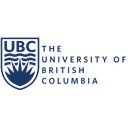Gain expertise in biospecimen handling and biobanking protocols, from collection to long-term storage, following global research standards.
Gain expertise in biospecimen handling and biobanking protocols, from collection to long-term storage, following global research standards.
This advanced course teaches professionals the essential methods and best practices for biospecimen research and biobanking. Led by experts from UBC and BC Cancer, participants learn international standards based on NCI and ISBER guidelines. The course covers collection techniques, storage protocols, data management, and ethical considerations in biobanking. Students gain practical knowledge in handling human biospecimens, enhancing research credibility, and managing biospecimen data. The comprehensive curriculum prepares researchers for successful careers in biomedical research laboratories and biobanks.
4.7
(6 ratings)
Instructors:
English
English
What you'll learn
Develop expertise in collecting and processing human biospecimens for enhanced research quality
Master the planning and execution of successful biospecimen research studies
Learn proper biospecimen storage methods and data management practices
Understand critical ethical and privacy considerations in biobanking
Implement effective informed consent and data management protocols
Apply international best practices for biobanking research
Skills you'll gain
This course includes:
PreRecorded video
Graded assignments, exams
Access on Mobile, Tablet, Desktop
Limited Access access
Shareable certificate
Closed caption
Get a Completion Certificate
Share your certificate with prospective employers and your professional network on LinkedIn.
Created by
Provided by

Top companies offer this course to their employees
Top companies provide this course to enhance their employees' skills, ensuring they excel in handling complex projects and drive organizational success.





There are 6 modules in this course
This comprehensive course focuses on biospecimen research methods and biobanking best practices. The curriculum covers essential aspects of biospecimen handling, from collection and processing to storage and distribution. Students learn about facility design, safety protocols, data management systems, and ethical considerations in biobanking. The course emphasizes practical applications of international standards from NCI and ISBER, preparing participants for high-quality research in biomedical laboratories and biobanks.
Overview of Biospecimen Research
Module 1 · 4 Hours to complete
Biospecimens Collection and Processing
Module 2 · 4 Hours to complete
Biospecimen Storage and Distribution, Facility Design, and Safety
Module 3 · 4 Hours to complete
Data Systems and Records Management
Module 4 · 4 Hours to complete
Ethics, Privacy and Informed Consent
Module 5 · 4 Hours to complete
Conclusion and Final Exam
Module 6 · 4 Hours to complete
Fee Structure
Instructors

1 Course
Distinguished Pathologist and Biobanking Innovation Leader
Peter Watson serves as Director of Biobanking and Biospecimen Research Services at BC Cancer while holding positions as Professor of Pathology at the University of British Columbia and Senior Scientist at the BC Cancer Research Centre. His career spans over 25 years combining clinical practice as a breast pathologist with groundbreaking research in molecular pathology and biobanking. After completing his medical training at Cambridge University and specialist training in Anatomic Pathology at the University of Manitoba, he established himself as a clinician-scientist focusing on breast cancer biomarkers and tumor progression. His research program has led to significant discoveries, including the therapeutic potential of the S100A7 gene in breast cancer, resulting in over 200 scientific publications. As co-lead of the Canadian Tissue Repository Network and Deputy Editor of Biopreservation and Biobanking journal, he continues to advance biobanking practices nationally and internationally. Under his leadership, the BC Cancer Tumour Tissue Repository has collected samples from over 15,000 participants, supporting critical cancer research from discovery through clinical studies while maintaining his commitment to improving biospecimen research services and molecular pathology understanding

1 Course
Distinguished Biobanking Leader and Education Program Director
Sheila O'Donoghue serves as Leader of the Biobanking and Biospecimen Research Services (BBRS) unit at BC Cancer, where she directs national biobank certification and education initiatives through the Canadian Tissue Repository Network (CTRNet). Her expertise spans clinical research management and biobank operations, with over 15 years of experience managing national and local clinical research trials. Beyond her operational leadership, she contributes to research ethics and governance through her roles on the BC Cancer Research Ethics Board, the BC Children's Hospital Biobank executive committee, and the Cascadia Specimen Access Network governance committee. Her impact on international biobanking standards is evidenced by her past chairmanship of the Education and Training Committee for the International Society for Biological and Environmental Repositories (ISBER). As project manager for the BC BioLibrary, she has played a crucial role in advancing biospecimen research quality and standardization across Canada while maintaining her commitment to ethical research practices and professional education in biobanking
Testimonials
Testimonials and success stories are a testament to the quality of this program and its impact on your career and learning journey. Be the first to help others make an informed decision by sharing your review of the course.
Frequently asked questions
Below are some of the most commonly asked questions about this course. We aim to provide clear and concise answers to help you better understand the course content, structure, and any other relevant information. If you have any additional questions or if your question is not listed here, please don't hesitate to reach out to our support team for further assistance.



